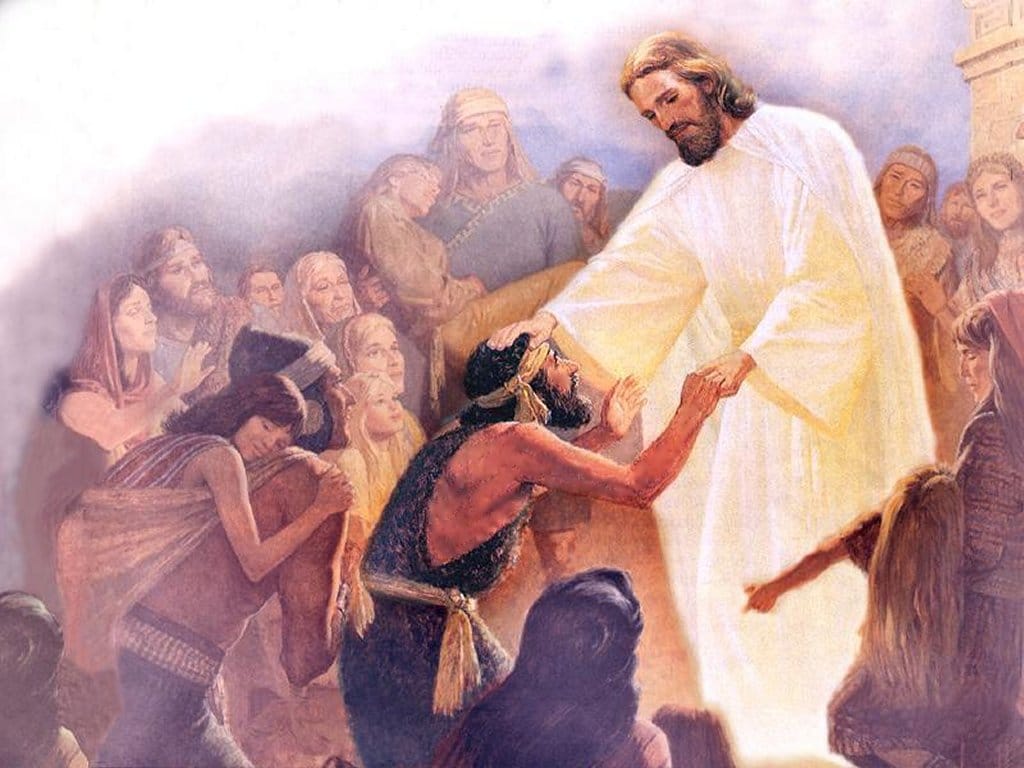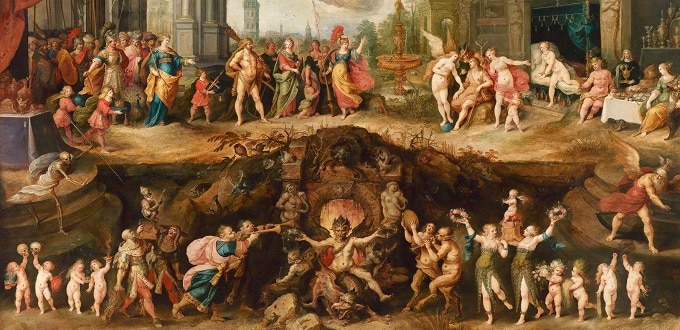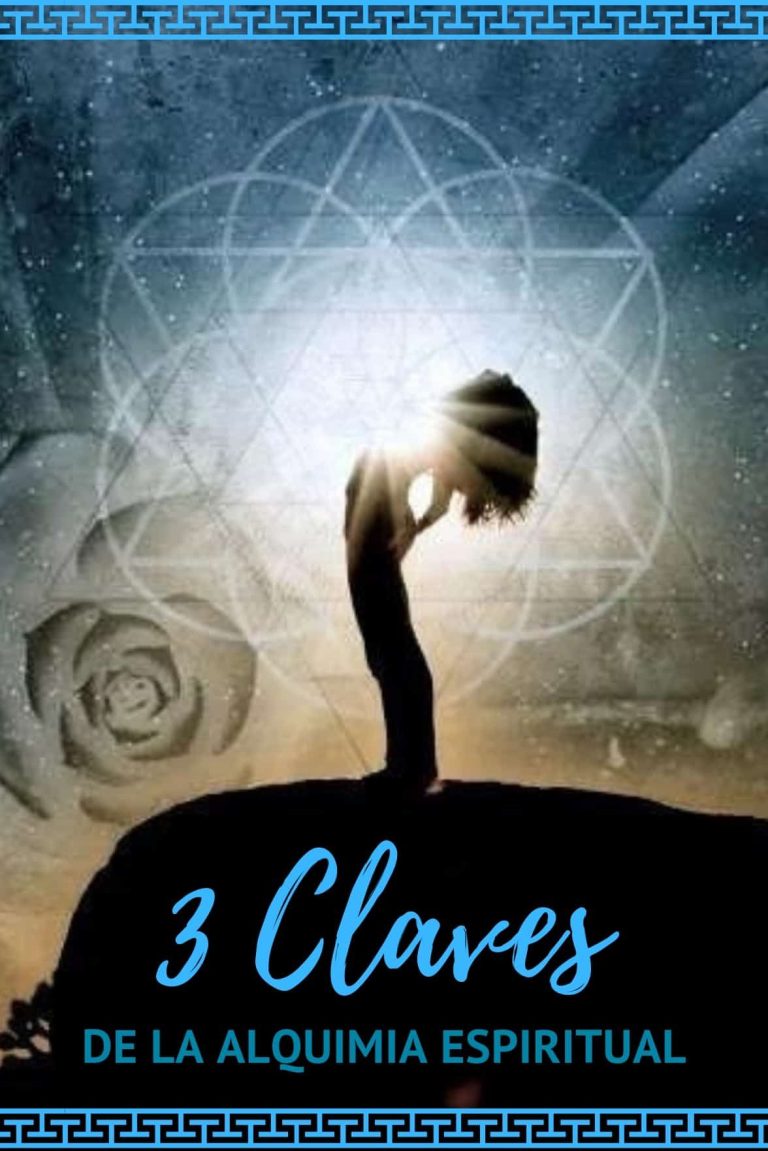Incarnation: What it is, Meaning and Concept
The Incarnation consists, for example, in the person of Jesus Christ who descended from heaven and became flesh in a human body. In the following article we will know everything about the Incarnation and its meanings.
Incarnation
Incarnation of the Latin language incarnatio, from incarnatum, incarnare, for Christians it becomes the moment in which the Word of God, that is, God the Son, became incarnate in Jesus Christ, by the power of the Holy Spirit, and in this way assumed the nature human, coming to divest himself of his divinity in obedience to God the Father in order to reconcile humanity lost by sin.
According to Christian doctrine, the only Person of Jesus Christ has 2 wills, 2 intelligences and 2 natures:
- the human
- The divine
The Council of Chalcedon that was convoked in the year 451, in the dogmatic letter of Pope Leo I, thus, came to declare that after the Incarnation, what became proper to each of the natures and of the substance in Christ it came to remain intact and the 2 were united in 1 single person, however, in a way that each nature came to act according to its own qualities and characteristics.
Jesus Christ is the true Son of God and is also the true Son of the Blessed Virgin Mary. Given the great importance of this type of event, history is divided into before and after Christ. According to Tertullian:
“The divine ray, which is the Word or the Logos, descended to a virgin, took her flesh in her womb and was born, man and God at the same time.”
Saint Cyril of Alexandria, on the other hand, explains it as follows:
“Jesus existed, he was begotten by the Father before all time, and yet he was born of the flesh of a woman.”
The Catechism of the Catholic Church goes so far as to point out that the Church calls “Incarnation” the fact that the Son of God has come to assume a kind of human nature in order to carry out through it the salvation of all, always recognizing that the Son of Almighty God descended to earth to dwell with men. In a hymn that is taken from Saint Paul in the book of Philippians 2:5-8, the Church sings the mystery of the Incarnation:
“Have among yourselves the same sentiments that Christ had: who, being of divine condition, did not avidly hold to being equal to God, but emptied himself by taking the condition of a servant, becoming like men and appearing in his appearance as a man; and he humbled himself, obeying unto death and death on a cross.”
Philippians 2:5-8
Faith in the incarnation of the Son of God becomes the distinctive sign of Christian faith:
“In this you will be able to know the Spirit of God: every spirit that confesses Jesus Christ, who has come in the flesh, is from God.”
1 Juan 4:2.
The Polish brothers of the seventeenth century came to see the incarnation of the word as the embodiment of God’s plan, in one of Abraham’s descendants, and not as the incarnation of a person who came to exist in heaven, before his death. birth.
Walk of the Incarnation
This is a walk that is carried out from March 25 to December 25. So we can participate in a kind of Marian devotion that is usually called the walk of the incarnation, in which people go day after day to the Lady of the Incarnation for the course of the 9 months that was the time that she carried her son Jesus in her womb.
It’s about 9 months of getting to do this kind of prayer on a daily basis. During the Walk of the Incarnation, each of the participants usually asks the Blessed Virgin to help them achieve some 3 graces that are very special.
The First Hail is Prayed
God save you oh Queen and also Mother of Mercy, sweet life and the hope of many, God save you, on this day the exiled children of Eve cry out to you, who beg you in such a way that they moan and cry in this valley of tears.
Be it then, Lady Advocate of many, that you return to them those merciful eyes of yours, and after this exile you be showing us Jesus, the great blessed fruit of your womb,
Oh merciful!, oh pious!, oh sweet Virgin Mary! Please, we ask you to pray for each of your children Holy Mother of God so that they are worthy of being able to achieve the promises of Our Lord Jesus Christ. Amen.
Prayer
Oh holy Virgin of the Incarnation, a thousand times on this day we salute you, a thousand congratulations we give you for the joy you came to have when God incarnated in you, because you are so powerful oh holy Virgin and Mother of God, please I ask you to this day grant me what I ask for the love of God, for the love of God.
After this prayer, one proceeds to meditate and also asks for the first grace that one wishes to obtain through the grace and help of the Virgin of the Incarnation.
The Second Hail is Prayed
God save you oh Queen and also Mother of Mercy, sweet life and the hope of many, God save you, on this day the exiled children of Eve cry out to you, who beg you in such a way that they moan and cry in this valley of tears.
Be it then, Lady Advocate of many, that you return to them those merciful eyes of yours, and after this exile you be showing us Jesus, the great blessed fruit of your womb,
Oh merciful!, oh pious!, oh sweet Virgin Mary! Please, we ask you to pray for each of your children Holy Mother of God so that they are worthy of being able to achieve the promises of Our Lord Jesus Christ. Amen
Prayer
Oh holy Virgin of the Incarnation, a thousand times on this day we salute you, a thousand congratulations we give you for the joy you came to have when God incarnated in you, because you are so powerful oh holy Virgin and Mother of God, please I ask you to this day grant me what I ask for the love of God, for the love of God.
After this prayer, one proceeds to meditate and also asks for the second grace that one wishes to obtain through the grace and help of the Virgin of the Incarnation.
Pray the Third Hail
God save you oh Queen and also Mother of Mercy, sweet life and the hope of many, God save you, on this day the exiled children of Eve cry out to you, who beg you in such a way that they moan and cry in this valley of tears.
Be it then, Lady Advocate of many, that you return to them those merciful eyes of yours, and after this exile you be showing us Jesus, the great blessed fruit of your womb,
Oh merciful!, oh pious!, oh sweet Virgin Mary! Please, we ask you to pray for each of your children Holy Mother of God so that they are worthy of being able to achieve the promises of Our Lord Jesus Christ. Amen
Prayer
Oh holy Virgin of the Incarnation, a thousand times on this day we salute you, a thousand congratulations we give you for the joy you came to have when God incarnated in you, because you are so powerful oh holy Virgin and Mother of God, please I ask you to this day grant me what I ask for the love of God, for the love of God.
After this prayer, one proceeds to meditate and also asks for the third grace that one wishes to obtain through the grace and help of the Virgin of the Incarnation.
Closing Prayer
Remember, O pious Virgin Mary, that it has never been heard of that none of those who have come to your protection, imploring for your prompt help, have become helpless.
Encouraged by this kind of trust, I turn to you, O Virgin of the Incarnation. The Mother of my Lord Jesus Christ and coming to groan under the weight of all my sins, at this moment I dare to appear before you, Oh healthy Mother of God, for which I ask you not to reject any of my pleas, rather than be heard and welcome them in a merciful way, oh my Mother, for the Mystery of your Most Holy Incarnation and for the Love of God. Amen.
Merciful God the Father, who, with the cooperation of the Holy Spirit, came to prepare the body and also the soul of the glorious Virgin and also Mother Mary so that she would become worthy of being a worthy woman as the abode of your Son; For what we ask you to grant to your children, to celebrate with great joy the mystery of the Incarnation, through her enormous and pious intercession, and at the same time we may be freed from both present evils and eternal death. By the same of Christ our Lord. Amen.
Blessed and praised may the Blessed Sacrament of the Altar be in heaven, on earth and everywhere. (This must be said for about 3 times in a row). Amen.
The Work of the Incarnation
The assumption of the human nature of Jesus Christ by the Person of the Word becomes the work of the 3 divine Persons. The Incarnation of God is usually the Incarnation of the Son, not of the Father, nor of the Holy Spirit. However, the Incarnation became a work of the whole Trinity.
For that same reason, Holy Scripture is sometimes attributed to God the Father Hebrew 10:5; Galatians 4:4, or the Son himself described in the book of Philippians 2:7, or the Holy Spirit as the book of Luke 1:35 says and as the book of Matthew 1:20 says. It is emphasized in this way that the work of the Incarnation became a single act, general to the 3 divine Persons.
St. Augustine went so far as to explain that “the fact that Mary came to conceive and give birth is the work of the Trinity, because the works of the Trinity become inseparable.”
It is an effect of an extra divine action, whose effects are outside of God, in the creatures, since they become the work of the 3 Persons jointly, because one and only becomes the Being divine, which is the same infinite power of God.
The Incarnation of the Word does not affect divine freedom, since God could have decided that the Word would not incarnate, or that another divine Person would incarnate. However, this means that God becomes infinitely free does not mean that his decisions become arbitrary nor does it deny that love becomes the reason for his actions.
For this reason, theologians tend to seek the reasons of convenience that can be glimpsed in the different divine decisions, as they are manifested in the current economy of salvation. These only seek only to get to highlight the wonderful wisdom and also the coherence that there is in all kinds of divine work, not an eventual necessity in God. As well as the cross of incarnation human design
The Virgin Mary, Mother of God
The Virgin Mary became predestined to be the Mother of God from all eternity together with the Incarnation of the Word:
“In the mystery of Christ, Mary is already present “before the creation of the world” as the one whom the Father ‘has chosen’ as the Mother of his Son in the Incarnation, and together with the Father the Son has chosen her, entrusting her eternally to the Spirit of holiness”
The divine election comes to respect the freedom of Holy Mary, because “The Father of mercies always wanted the consent of the one who was predestined to be the Mother to precede the incarnation so that, in this way, as a woman contributed to the death, as in the same way another woman contributes to life. For this very reason, since ancient times, the Fathers of the Church have come to see Mary as the New Eve.
“In order to become the Mother of the Savior, Mary became “endowed by God with gifts befitting a mission of such great importance.” The Archangel Gabriel, at the moment of giving her Annunciation, greets her as “full of grace you are” (Luke 1:28). Before the Word became incarnate, Mary at that moment was already, due to her correspondence to the divine gifts, full of grace.
The grace that was received by Mary makes her pleasing before God and prepares her to be the virginal Mother of the same Savior. Finally, possessed by the grace of God, she was able to come to give her free consent to the announcement of her vocation.
In this way, “giving her consent to the word of God, Mary became the Mother of Jesus and, always accepting with all her heart the divine will of salvation, without any type of sin preventing her, she gave herself completely to the person and work of the Son, in order to be able to serve, in his dependence and with him, by the grace of God, the Mystery of Redemption”.
The Eastern Fathers usually come to call the Mother of God as “the All Saint” and also “celebrate her” as immune from all stain of sin and also as molded by the Holy Spirit and made a new creature. By the grace of God Mary she has come to remain pure from all personal sin throughout her entire life when she was in this world”.
Mary has come to be redeemed from her conception: “it is what the dogma of the Immaculate Conception confesses, always proclaimed in 1854 by Pope Pius IX: “… the Blessed Virgin Mary who came to be preserved immune from all stain of original sin at the 1st moment of its conception by the singular grace and also the privilege of God Almighty, in attention to the merits of Jesus Christ Savior of the human race.
The Immaculate Conception comes to manifest the gratuitous love of God, since it has become a divine initiative and not the merit of the Virgin Mary but rather of Christ. In fact, “this resplendent holiness of the singular whole, with which she came to be enriched from the first moment of her conception, comes entirely to her from Christ: since she is redeemed in a much more sublime way in attention to the merits of her Son”.
Figures and Prophecies of the Incarnation
It has been observed in the previous topic how after the sin of the first parents, who were Adam and Eve, God did not abandon man but instead promised them a Savior, Genesis 3:15.
After the occurrence of original sin and the promise of the Redeemer, God himself again takes the initiative and in turn established a kind of Alliance with men:
- First with Noah after the flood, Genesis 9:10
- Second with Abraham, Genesis 15:17
To whom he came he promised a great offspring and at the same time to make her a great people, giving her a new land, and in whom one day all nations would be blessed. The Alliance was subsequently renewed with his son Isaac, Genesis 26: 2-5 and then with Jacob Genesis 28: 12-15; 35:9-12. In the Old Testament, the Covenant reaches its fullest expression with Moses Exodus 6:2-8; Exodus 19:34.
The most important moment in the history of relations between God and the people of Israel became the prophecy of Nathan 2 Samuel 7:7-15, which announces that the Messiah will be from the descendants of King David and that He will reign over all peoples, not just over the people of Israel.
Of the Messiah it will be said in other prophetic texts that his birth will take place in the regions of Bethlehem Micah 5:1, that he would belong to the lineage of David Isaiah 11:1; that he would be given the name “Emmanuel”, which means, God with us; that he will be called “Mighty God, Eternal Father, Prince of Peace” as Isaiah 9:5 says, etc.
Along with these texts that come to describe the Messiah as the king and also a descendant of David, there are others that relate, also in a prophetic way, the redemptive mission of the Messiah, calling him the Servant of Yahweh, as the servant of sorrows, who he will assume in his body reconciliation and peace Ephesians 2:14-18.
In this context, the text that quotes the book of Deuteronomy 7:13-14 about the Son of man, who mysteriously through humility and abasement overcomes the human condition and manages to restore the messianic kingdom in its phase, is of great importance. definitive.
The main figures of the Redeemer in the Old Testament become the innocent Abel, the high priest Melchizedek, the sacrifice of Isaac, Joseph when he is sold by his brothers, the Passover lamb, the bronze serpent that is raised by Moses in the desert and also the prophet Jonah.
The Names of Christ
There are many names and titles attributed to Christ by theologians and spiritual authors throughout the centuries. Some are taken from the Old Testament; others, from the New Testament. Some are often used or accepted by Jesus himself; others have come to be applied by the Church throughout the centuries. So some of the most important and common names are:
- Jesus
That in the Hebrew language comes to mean “God saves”: “at the time of the annunciation, the angel Gabriel came to give him as his own name the name of Jesus, which usually expresses both his own identity and his mission”), this means, He is the Son of God who became man to save “his people from all their sins” Matthew 1:21.
The name of Jesus “means that the very Name of God is present in the person of his Son” Acts 5:41; 3 John 7, which made man for the universal and definitive redemption of sins.
He is the divine Name, the only one that brings salvation to men (John 3:18; Acts 2:21) and from now on he can be invoked by all because he has joined all men through the Incarnation”. The name of Jesus is at the heart of Christian prayer.
- Cristo
The name of Christ that comes from the Greek translation of the Hebrew term “Messiah” and that means “anointed”. It becomes the proper name of Jesus “because He perfectly fulfills the divine mission that the very word means. Indeed, in the people of Israel those who became consecrated to him for a mission they had received from him were anointed in the name of God.
This became the case with priests, kings, and exceptionally with prophets. This had to become par excellence the case of the Messiah that God himself would send in order to definitively establish his Kingdom. Jesus fulfilled the messianic hope of the people of Israel in his triple role as priest, prophet and king.
Jesus “came to accept the title of Messiah to which he was entitled, however, not without reservations because a part of his contemporaries came to understand him according to a much more human conception (Matthew 22:41-46), essentially politics (John 6:15; Luke 24:21).”
- Jesus Christ
He is the Only Begotten of God, the only Son of God. The filiation of Jesus with respect to the Father is not an adoptive filiation like ours, but the natural divine filiation, this means:
“The unique and eternal relationship of Jesus Christ with his Father God: He is the only Son of the Father (John 1:14-18; 3:16-18) and He Himself is God (John 1:1). To be a Christian person is required to believe that Jesus Christ is the Son of God (Acts 8:37; 1 John 2:23).”
The 4 gospels are the ones that “narrate to us on 2 solemn occasions, the baptism and the transfiguration of Christ, that the voice of the Father designates him as his “beloved Son” (Matthew 3:17; 17:5). Jesus designates himself as the “only Son of God” (John 3:16) and goes so far as to affirm by means of this very title his eternal pre-existence.”
- Señor
“In the Greek language translation of the books of the Old Testament, this is the ineffable name with which God revealed himself to Moses (Exodus 3:14), YHWH, is translated by “Kyrios” which means “Lord”. Since then, Lord has become the most common name to designate the very divinity of the God of Israel.
The New Testament uses in this strong sense the title of “Lord” for the Father, however, it is used equally, and here is the novelty, for Jesus coming to recognize him as God (1 Corinthians 2:8).
Attributing to Jesus the divine title of Lord, “the first confessions of faith of the Church are those that affirm from the beginning (Acts 2:34-36) that power, as well as honor and glory because of God Father suit Jesus in the same way (Romans 9:5; Titus 2:13; Revelation 5:13) because He is of “divine nature” (Philippians 2:6) and the Father was the one who manifested this kind of sovereignty of Jesus by raising him from the dead and exalting him to his glory (Romans 10:9; 1 Corinthians 12:3; Philippians 2:11).”
Christian prayer, liturgical or even personal, is very marked by the title of “Lord”, when a son of yours is praying and interceding.
Christ is the only Perfect Mediator between God and Men. He is Master, Priest and King
Many Catholics affirm the following according to their catechism 480:
” Jesus is true God and true man in the unity of his divine Person: for this reason He is the only Mediator between God and men.”
The deepest expression of the New Testament regarding the mediation of Christ is found in the first letter to Timothy where it is said:
“There is 1 only God, and also 1 only mediator between God and men, the man Christ Jesus, who gave himself as a ransom for all.”
1 Timothy 2:5.
The person of the Mediator and the action of the Mediator are presented here. And in the letter to the Hebrews Christ is presented as the mediator of a New Covenant (Hebrews 8:6; 9, 15; 12, 24). Jesus Christ is the mediator because he is perfect God and perfect man, yet he mediates in and through his humanity.
Those New Testament texts are the ones that present Christ as the prophet and revelator, as the great high priest and also as the Lord of all creation. It is not about 3 different ministries, but about 3 different aspects of the salvific function of the only mediator.
Christ is the prophet that was announced in the book of Deuteronomy 18:18. For a prophet the people had Jesus Matthew 16:14; Mark 6:14-16; Luke 24:19. The very beginning of the letter to the Hebrews becomes paradigmatic for these purposes. However, Christ is more than the prophet:
He is the Master, this means, the one who teaches us by his own authority, with an authority that is unknown until then that always left scholars or teachers of the law surprised and especially those who listened to him. The supreme character of Jesus’ teachings comes down to the fact that he is both God and man.
Jesus not only teaches the truth, but He is the Truth which is made visible in the flesh. Christ, the eternal Word of the Father, “is the unique, perfect and insurmountable Word of the Father. In Him he says everything, there will be no other word than this one”. The teaching of Christ becomes definitive, also in the sense that, with it, the Revelation of God to men in history has reached its ultimate fulfillment.
- Christ is Priest
The mediation of our beloved Lord Jesus Christ becomes a priestly mediation. In the letter to the Hebrews, which has as its main central theme the priesthood of Christ, Jesus Christ comes to be presented as the High Priest of the New Covenant:
“only High Priest, after the order of Melchizedek”
Hebrews 5:10; 6, 20.
“Holy, innocent, immaculate”
Hebrews 7:26.
“who, by a single oblation, has brought to perfection forever those who are sanctified.”
Hebrews 10:14.
This means, through the unique sacrifice of his Cross. In the same way that the sacrifice of Christ, his death on the Cross of Calvary, is unique because of the unity that exists between the priest and the victim of infinite value, in this way also his priesthood becomes unique. He is usually the only victim and the only priest.
The sacrifices of the Old Testament became figures of that of Christ and used to receive their value precisely by their ordination to that of Christ. The priesthood of Christ, which is the eternal priesthood, comes to be shared by the ministerial priesthood and by the priesthood of the faithful, which neither add to nor succeed that of Christ.
- Christ is King
It is not only as God, but in the same way as man. The sovereignty of Christ reaches a fundamental aspect of his salvific mediation. Christ is the one who saves because he has the great effective power to do so. The faith of the Catholic Church affirms the kingship of Christ and is the one that professes in the Creed that:
“his kingdom will have no end”.
Thus repeating what the archangel Gabriel said to Mary in the book of Luke 1:32-33. The kingly dignity of Christ had already come to be announced in the Old Testament Psalms 2:6; Isaiah 7:6; 11. 1-9; Deuteronomy 7:14.
Christ, however, did not get to speak much about his kingship, because among the Jewish people of his time a kind of material and earthly conception of the Messianic Kingdom was very widespread. He did recognize him at a certain particularly solemn moment, when he was answering a question that Pontius Pilate was asking him, the gentleman replied:
“If you say it. I am King”
Juan 18:37.
The kingship of Christ does not become metaphorical, but truly real and conforms to the power to legislate and judge. It is a kind of kingship that is based on the fact that he is the Word already incarnate and that he is our eternal Redeemer. His kingdom becomes spiritual and eternal.
It is a kingdom of holiness and also of justice, love, truth and peace. Christ comes to exercise his kingship by drawing all men to himself by his death and also his resurrection (John 12:32). Christ, King and Lord of the universe, became the servant of all, not having come to this world:
“come to be served, but to serve and give his life as a ransom for many.”
Mateo 20:28.
All the faithful come to participate in these 3 functions of Christ and have the responsibilities of mission and service that flow from them”.
All the Life of Christ is Redeeming
As far as the life of Christ is concerned, “the Symbol of faith speaks only of the mysteries of the Incarnation (specifically of conception and birth) and also of Easter among them:
- Passion
- Crucifixion
- Death
- Grave
- Descent into Hell
- Resurrection
- ascension
It does not say anything explicitly about the mysteries of the hidden and public life of Jesus, however, the articles of faith referring to the Incarnation and also to the Passover of Jesus illuminate the entire earthly life of Christ.
The whole life of Jesus Christ becomes redemptive and any type of human act of his has a transcendent value of salvation. Even in the simplest acts and the most apparently least important of Jesus there is an effective exercise of his mediation between what is God the Father and men, since they tend to be the actions of the Incarnate Word at all times.
This kind of doctrine came to be understood with special depth by Saint Josemaría, who has come to teach how to transform all the paths of the earth into the divine paths of sanctification:
“The fullness of time arrives and, to fulfill that mission (…) an Infant is born in Bethlehem. He is the Redeemer of the world; but, before speaking, he loves with works. He does not bring any magic formula, because he knows that the salvation he offers must pass through the heart of man. His first actions are laughter, the tears of a child, an unarmed dream of an incarnate God: to make us fall in love, so that we know how to welcome him into our arms”.
The years of the hidden life of Jesus are not usually a simple preparation for his public ministry, but consist of true redemptive acts, which are oriented towards the consummation of the Paschal Mystery. The fact that Jesus came to share in the course of most of his life the condition of the vast majority of men has enormous theological relevance:
The daily life of the family and also of work in Nazareth. Nazareth becomes a lesson in family life, a lesson in work. Christ in the same way comes to accomplish the redemption in the course of the many years of work of his hidden life, always giving all his divine meaning in the history of salvation to what is the daily work of the Christian, and of millions of men of good will:
“Jesus, growing up and living as one of us, reveals to us that human existence, current and ordinary activities, have a divine meaning.”

Hello! Let me enthusiastically introduce myself as a dedicated blogger fueled by an intense passion for meticulously crafting insightful and well-researched blogs. My mission revolves around providing you, dear readers, with a veritable treasure trove of invaluable information.






